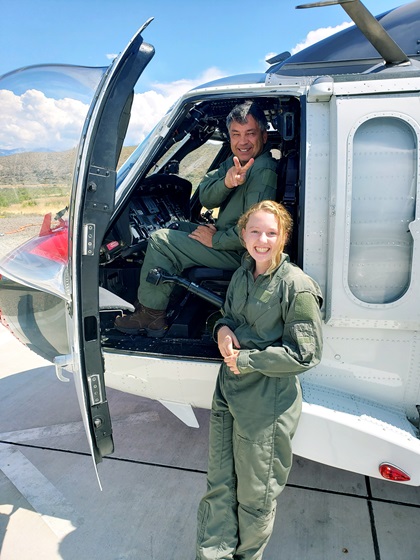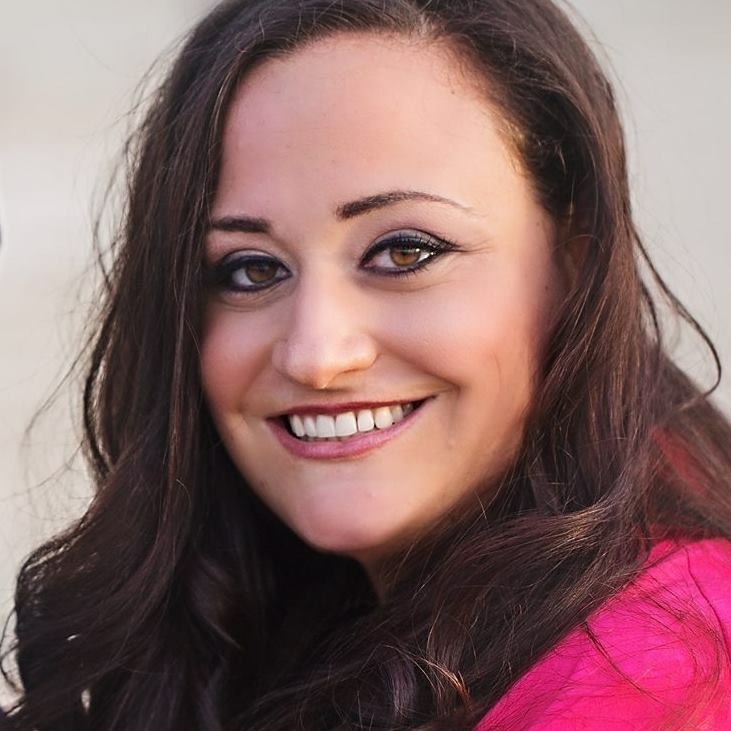Hero at 19
While most 19-year-olds are still figuring out what their college majors will be, Ashli Blain is already an accomplished pilot with two seasons of fighting wildfires under her belt, and a backup plan of majoring in accounting.
Blain recently made headlines for being one of the youngest female pilots to help fight the California wildfires ravaging more than 2.3 million acres in the state. Blain has been around aviation since she was born and has been flying since she was 13 years old.
Still finding time to fly, she is also working on her plan B—earning a degree at Rocky Mountain College in Montana, where she is a freshman.
Humble about her recent accolades, Blain mostly flies for her father’s company, Billings Flying Service, which contracts for disaster relief efforts, firefighting, and other operations. Blain is soft-spoken and exudes a sense of calmness about the firefighting missions, despite having so much resting on her shoulders.
If she has already accomplished this much at only 19, imagine what is in store for her future. AOPA reached out to Blain to talk about what it’s like to be young, female, and well on her way to an accomplished aviation career before even starting college.
How did you get involved with aviation?
I was fortunate enough to be born into a family of pilots. My father and uncle co-own a helicopter company called Billings Flying Service. Aviation has always been a major part of my life, but I didn’t actually start flying myself until I was 13, which is when I began to learn to fly in a Schweizer 2-33 glider and a Super Cub.
What is your favorite thing about flying?
Probably the people I’ve had the opportunity to meet. I think the aviation community is generally very welcoming and it’s always easy to get another pilot talking about airplanes!
Can you elaborate on your career in aviation and how you ended up in your current role, fighting fires?
As far as my professional flying, I've been working for my father’s company as both a fixed wing pilot and helicopter pilot since I got my commercial license. I’ve been following my dad around on fires for years and it’s always been something I've wanted to do. Last year, summer of 2019, was my first fire season. I initially went out with my dad in the Black Hawk and from there started flying as a copilot in the Chinooks as well.
What skills and personality traits do you feel it takes to do what you’re doing?
I think the most important things to have are a strong work ethic and a passion for what you’re doing. It’s been a long road to earn all the qualifications required and it hasn’t all been fun and games. I’ve always had a passion for aviation to help me push through and I think if I didn’t have that, I wouldn’t have been successful.
What accomplishment in aviation are you most proud of?
I think probably my [Cessna CJ single-pilot] type rating. I did that when I was 17 and it was the first time I ever felt like I was playing with the big dogs. I had to perform to standards I had never been held to before. It was incredibly difficult for me at the time. I remember my simulator instructor gave me a big speech the first day he worked with me. He told me to never let anyone intimidate me and it’s advice I carry with me every day.
What are you majoring in in college, and what are you hoping to do after graduating?
I’ve actually been teased quite a bit for it, but I’m majoring in accounting. I’m a big believer in having a plan B outside of aviation. I’m not quite sure what I want to do after graduating. I know I want to stay in aviation but I’m not sure in what capacity.
What would you recommend to others who don’t have any direct ties to aviation, but would like to explore becoming a pilot?
I would suggest utilizing resources that organizations such as the EAA, AOPA, [Soaring Society of America], etc. have available. There are various scholarships and learning opportunities that would provide a good starting point for students. Also, speak to pilots at local airports. I find that it is usually very easy to get a pilot to talk about themselves.

What would you say to other women (or anyone in general) interested in following in your footsteps?
That you have to have a passion for it. If you don’t, I don’t think it's worth it.
What is it like fighting these fires and knowing you are saving thousands of people’s lives?
It is very rewarding to know that we are able to help people during one of the scariest moments of their lives.
How does it work when you head into fires?
To put it simply, we usually receive a mission from our manager who tells us where we’ll be going, who we contact, and occasionally they’ll have specific routing they want us to use to get there. From there, they’ll have someone for us to contact to get clearance into the fire and who will give us instructions regarding where they want us to drop water/retardant.
How do you feel you inspire others to pursue their dreams in aviation?
I don’t think anything I’ve done is particularly inspirational. I suppose if I had to think of one, it’s that age and gender are not a measure of ability.
What are your thoughts on getting more women involved in aviation?
I think that they should know that this is no longer a man’s world, particularly in fixed wing flying. I’ve had a snide comment here or there but overall, everyone I’ve met in the industry has been incredibly supportive.
Do you have any aviation role models?
My dad and my uncle. They’ve always done their best to give back to the aviation community and I hope to be able to do the same.



